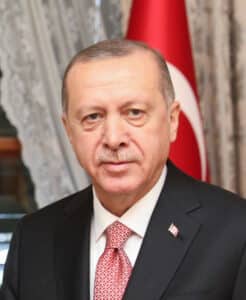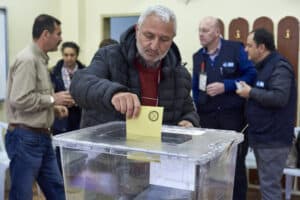İstiklal avenue, Istanbul (Flickr)
İstiklal avenue, one of the most vibrant streets in Istanbul’s bustling city centre, was the target of an attack that left at least six people dead and 81 injured. The Kurdish group PKK was identified by the authorities as the perpetrator, although the PKK categorically rejects the allegation. Meanwhile, the Turkish government used the tried-and-tested mechanism of restricting access to social media.
Blast in busy area of central Istanbul condemned, suspect arrested
The blast took place on İstiklal avenue, one of the main streets leading to central Taksim Square and known as a busy shopping street. After the attack, a heavy police force gathered around the area. Shopkeepers were stunned by the incident, adding that it came as a shock to many in the city. According to Turkish authorities, the suspected perpetrator of the attack is a Syrian-Kurdish woman. She was arrested along with 45 other people by the Turkish authorities. Interior Minister Süleyman Soylu blamed the Kurdistan Workers’ Party (PKK), a group banned in Turkey, for the blast in the busy shopping street.
However, the PKK denied any allegations of involvement, saying it does not target civilians and expressed sympathy for the victims. In the past, attacks were carried out by Kurdish separatists, ISIS, and other groups in several Turkish cities in 2015 and 2016. The PKK is currently listed as a terrorist group by Turkey, the EU, and the US. Moreover, the group’s status in Sweden is at the centre of an ongoing dispute between the two countries, with Turkey blocking Sweden’s entry into NATO since May for accusing Stockholm of treating the Kurdish group more leniently.
Limitations on social media
After the bombing, the Turkish government immediately a ban on the use of videos and photos of the blast and its aftermath. Later, the government also imposed restrictions on the use of social media. Internet observatory Netblock reported that social media platforms in Turkey; Twitter, Instagram, YouTube, and Facebook were restricted until the day after the blast. Gürkan Özturan, coordinator of Media Freedom Rapid Response at the European Centre for Press and Media Freedom, criticised the restrictions imposed by the government when he said, “In times of crisis, it is crucial to have access to accurate, reliable, and verified information. Any attempts to suppress this flow leads to increased speculation and distrust in society.”
The usage of censorship by Turkish authorities is not new. Freedom House has published several developments in its 2022 Freedom on the Net report showing that censorship is on the rise in Turkey. This year, for instance, the Social Media Law 2020 came into force and independent media were systematically banned, while pro-government media flourish. In addition, two international media outlets (Turkish language versions of Deutsche Welle and Voice of America) were also blocked because they no longer receive national accreditation. Since Freedom House began publishing this annual report in 2016, Turkey’s score has never been as low as in 2022, and internet freedom in Turkey is classified as “not free”.
Upcoming elections put media restrictions in the spotlight
The Turkish government’s measures are a familiar mechanism in the run-up to elections. For instance, before the local elections in March 2014, websites like Twitter, Facebook, and YouTube were blocked after leaked overheard recordings of corruption revelations circulated in Erdogan’s inner circle. Days later, a Turkish court had to overturn the government’s ban. The same principle was applied after the failed coup in 2016 and after the suicide bombings at Atatürk Airport in 2016, killing 45 people. At such moments of political uncertainty, internet and social media restrictions seem to be used to stifle free speech under the guise of counter-terrorism and are therefore strongly criticised by human rights organisations.
In the run-up to the 2023 elections, which are expected to produce a fierce battle for the presidency and the majority in parliament for Recep Tayyip Erdoğan and his AKP party due to the emergence of broad cooperation of the opposition (Table of Six), censorship mechanisms seem to be an essential part of Erdogan’s campaign strategy. By using tragic events such as the most recent attack in Istanbul to legitimise censorship, the Turkish government further restricts the freedom of its people, who depend on the media at the beck and call of the government for coverage. This allows the government to always determine the narrative, without dissent and without transparency.
Author: Mathieu Neelen
Sources: AlJazeera1, AlJazeera 2, BalkanInsight1, BalkanInsight2, BBC, FreedomHouse, Reuters, WilsonCenter
Photo: Flickr


